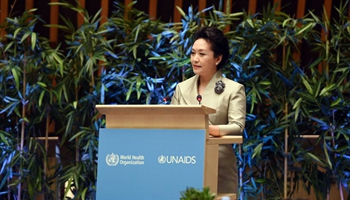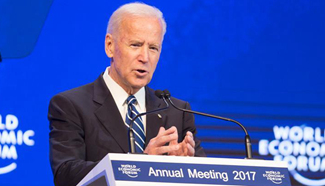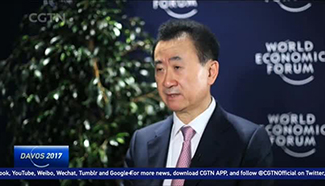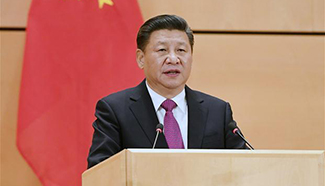BEIJING, Jan. 16 (Xinhua) -- China has mapped out a plan to improve the economy, standard of living and environmental conditions to a "new level" in its western regions by 2020, the country's top economic planner said Monday.
The State Council has released the plan setting goals for the country's "go west" strategy for 2016-2020, according to the National Development and Reform Commission (NDRC).
The government should complete the building of a moderately prosperous society in China's west by 2020, the NDRC cited the plan as saying.
Specific targets include sustained and healthy economic development, stronger innovation, more progress in industrial upgrading and infrastructure construction, as well as better environment and public services.
Major projects will be implemented to strengthen environmental protection, conserve energy and resources and improve disaster prevention and relief, according to the plan.
Efforts will also be made to reduce poverty and promote the opening up of regions along the Belt and Road.
The less-developed west presents difficulties for China's goals to eliminate poverty and achieve all-round moderate prosperity, but it also boasts huge potential for development, according to the NDRC.
China launched its "go west" strategy in 2000 to boost the economic development of 12 western provincial-level regions -- Chongqing, Sichuan, Guizhou, Yunnan, Tibet, Shaanxi, Gansu, Ningxia, Xinjiang, Inner Mongolia, Guangxi and Qinghai.
Under the strategy, western regions enjoy support in infrastructure construction, foreign investment, environmental protection, education and staff retention.
From 2011 to 2015, China invested 2.7 trillion yuan (392 billion U.S. dollars) in 127 key projects in the west, according to the NDRC.
Altogether 12,000 km of railways and 215,000 km of highways were built in that period, while rural residents' access to safe drinking water and electricity was expanded.
During the period, the per capita disposable income of urban residents in western regions rose 10.5 percent annually on average, while the net income of rural residents grew 11.2 percent annually, outpacing the national growth by 0.2 percentage points and 1 percentage point respectively, according to the NDRC.














